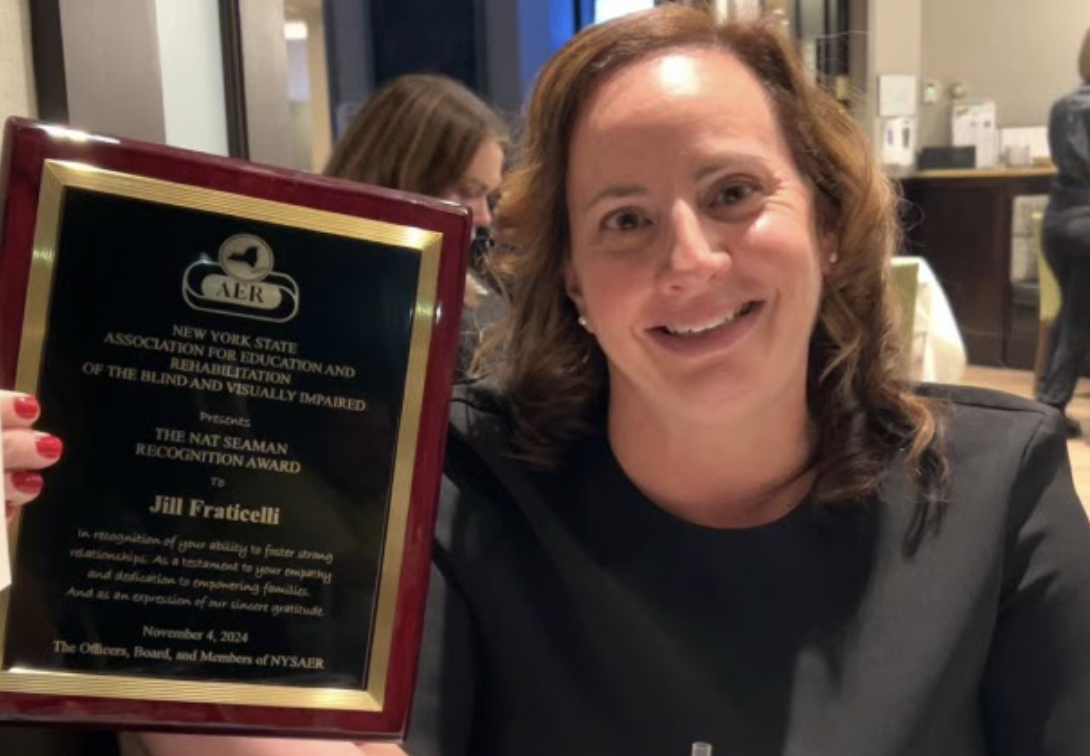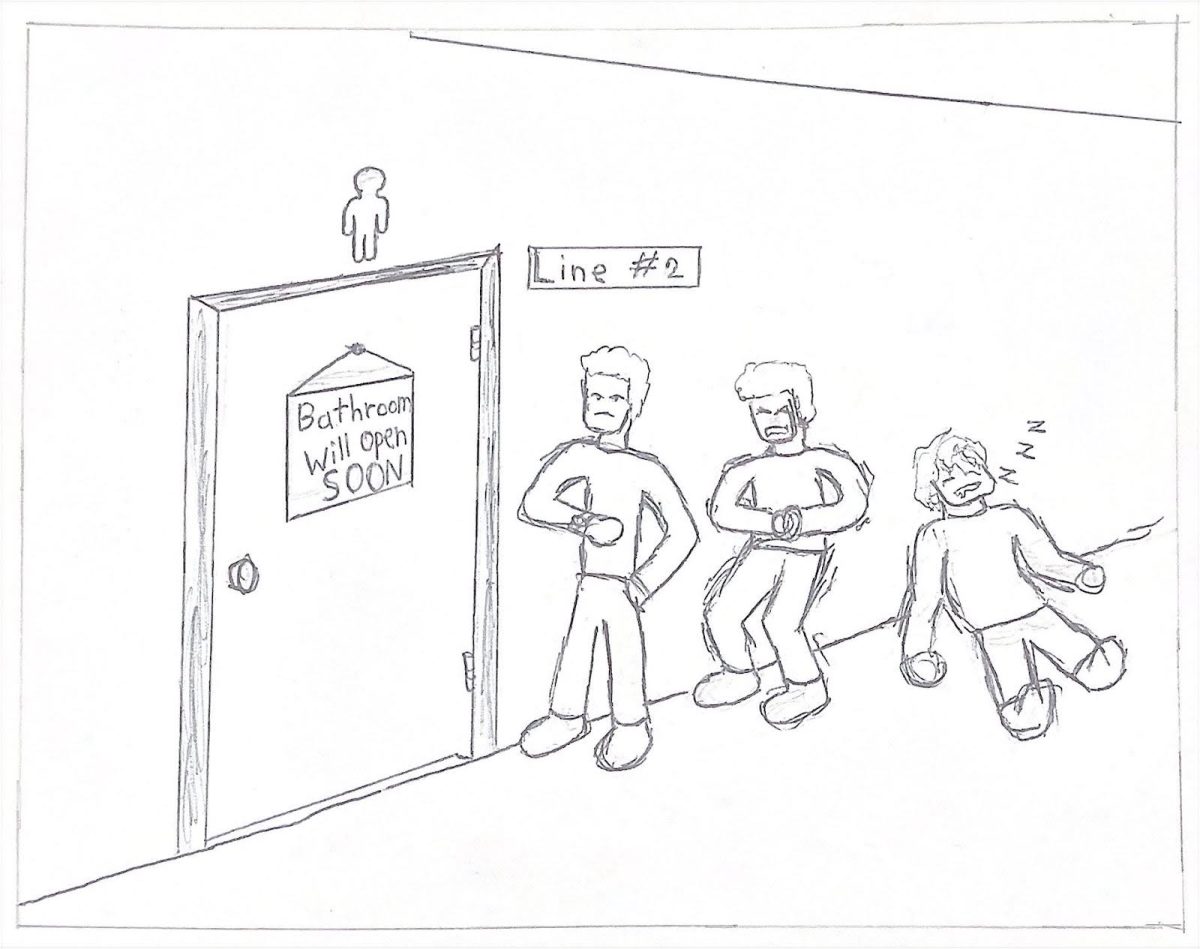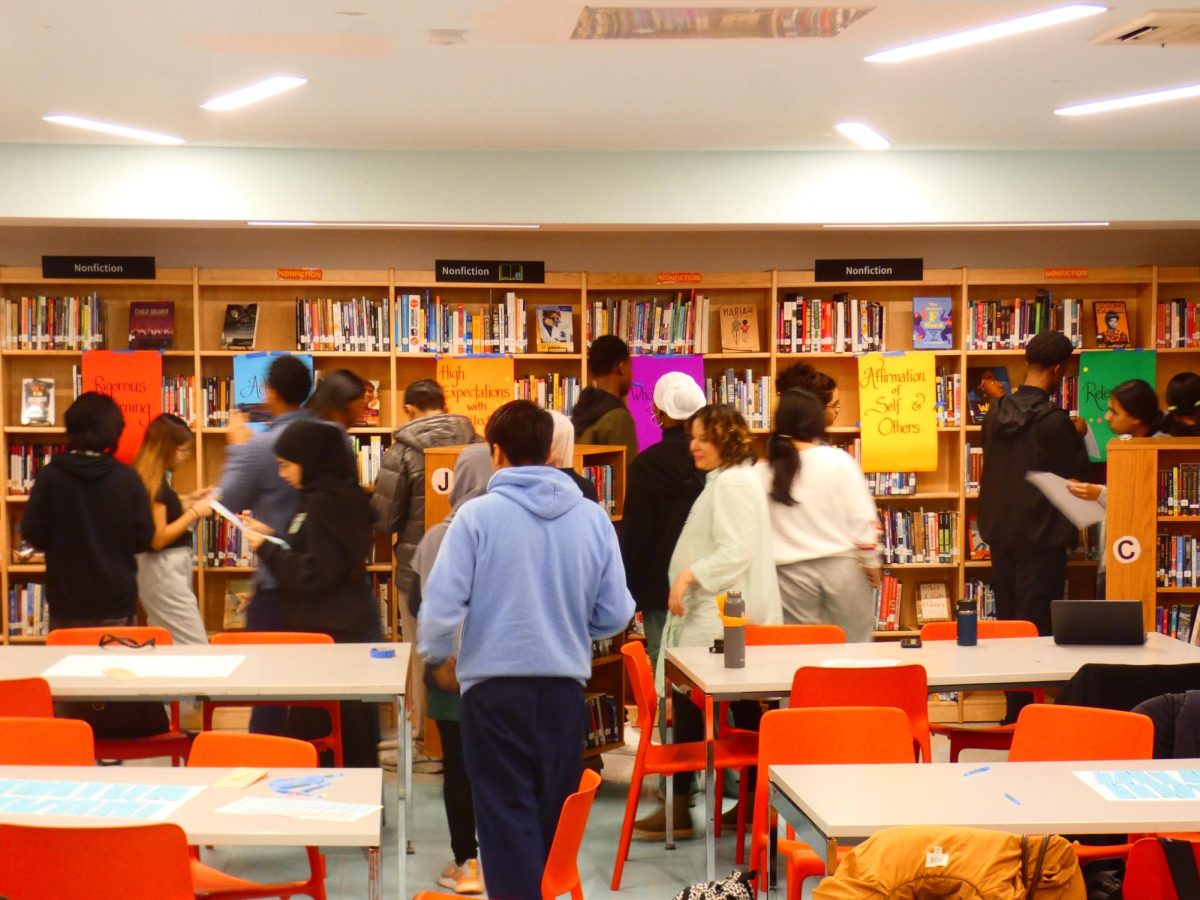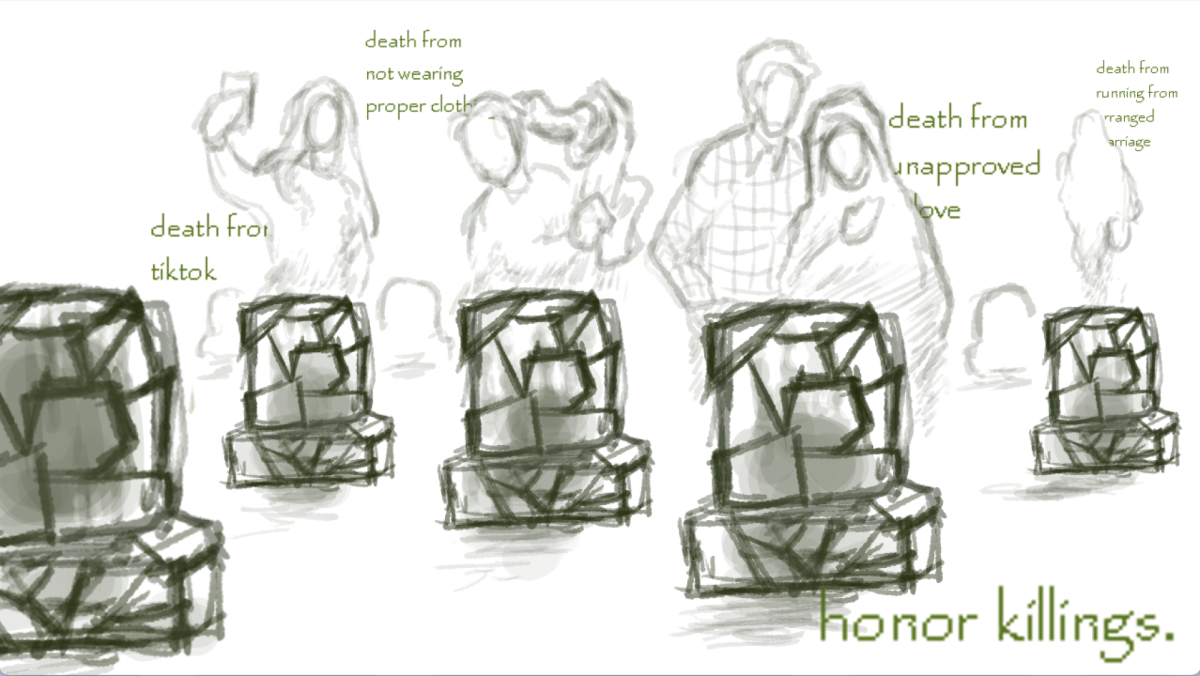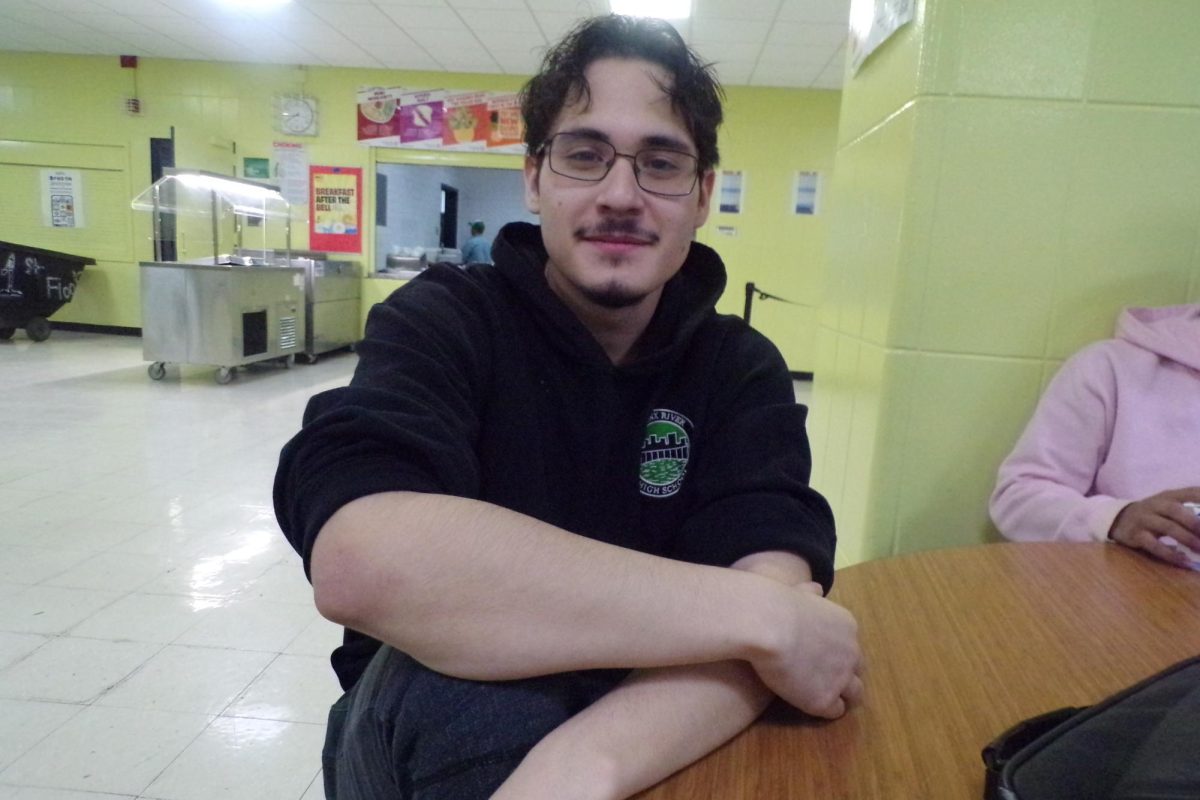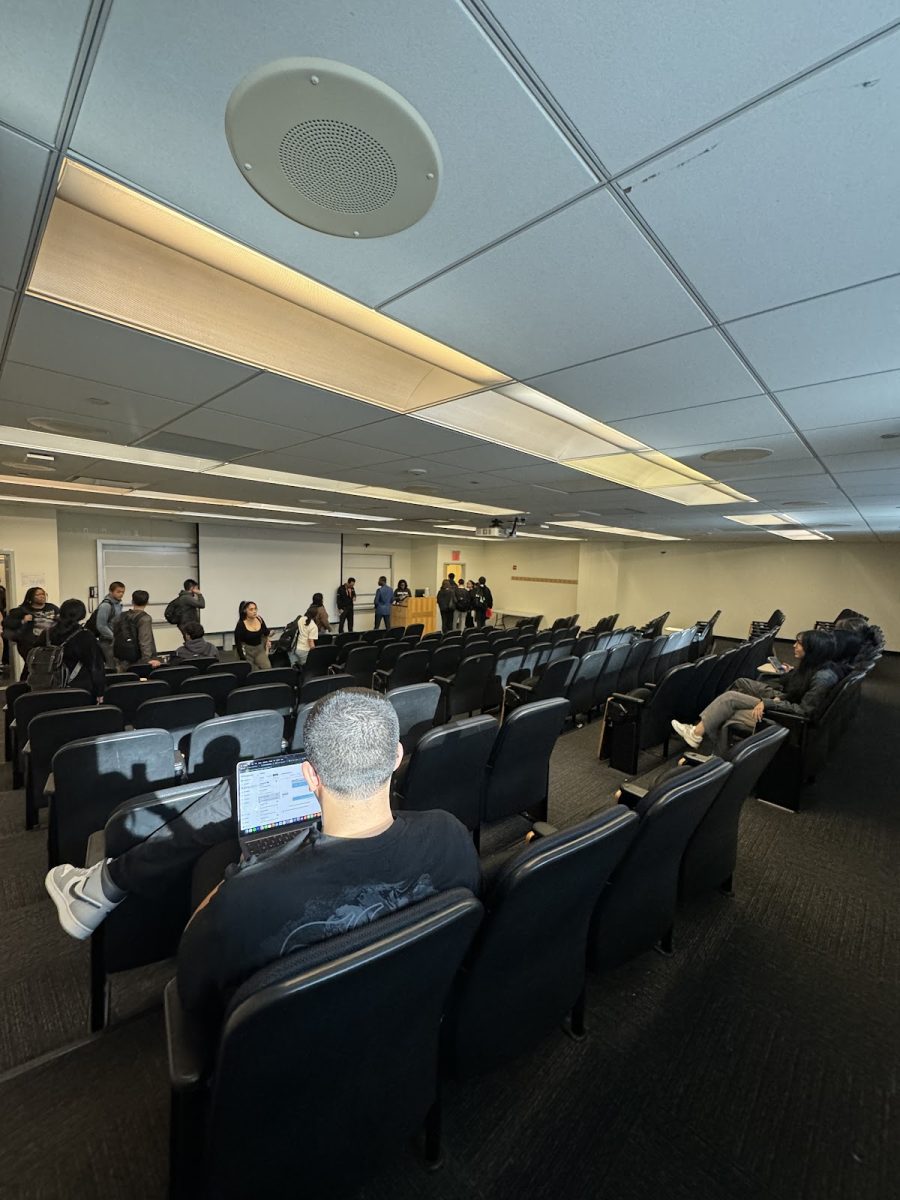Many people take their sight for granted, often unaware of the privilege that comes with having proper vision. Unfortunately, individuals with visual impairments face unique challenges, whether they are born with these issues or lose their sight later in life. In the classroom, teachers like Ms. Fraticelli, a vision teacher at Cardozo, strive to help students navigate these challenges and thrive despite their limitations.
Vision teachers play a crucial role in supporting students who are blind or visually impaired. “For a student who is blind or significantly visually impaired, that might mean teaching them braille and technology. For a student who has low vision, that might mean how to enlarge text and scan board work,” Ms. Fraticelli explained.
Her work encompasses customizing learning experiences based on each student’s Individualized Education Plan (IEP), whether that involves embossing class materials into braille or adapting assignments for technology use.
Recently, Ms. Fraticelli was honored with the Nat Seaman Recognition Award from the Association for the Education and Rehabilitation of the Blind and Visually Impaired (AER) for her outstanding contributions to the field in New York State.
This award is given to someone who has made an outstanding contribution in work with people with visual impairments in New York State. It is an award that can be received by any level of service, such as volunteers, legislators, eye care professionals, and support staff. Ms. Fraticelli was nominated for the award by a colleague and even had five other colleagues write her letters of support.
“It’s always nice to be acknowledged for the hard work and effort that you put into your job,” she said, reflecting on the award and her colleagues’ support, despite her preference to avoid the spotlight.
Originally trained as an English teacher, Ms. Fraticelli found her calling in working with visually impaired students after teaching at a specialized school. One of the most rewarding aspects of her job is the personal relationships she forms with her students.
“I see them every single day for years and have personal one-on-one sessions with them,” she shared.
Among her proudest moments is helping a student who lost his vision unexpectedly during the pandemic. Together, they navigated the challenges of learning braille remotely, allowing him to continue his education and prepare for college.
“A student who was here at Cardozo, he lost his vision very suddenly, his senior year, while we were home for the pandemic. He was very, very bright and an overachiever but he lost his vision suddenly, which is a scary thing to go through for anybody,” she explained.
The vision teacher shared that the student in question didn’t know any braille or anything, and the two had to work together over the computer and phone in order for him to learn how to adapt to this new challenge in life. “He went through a lot of emotional things that year, and I was able to help him navigate to a lot of that, and he still ended up being on course to go to college the following year as somebody who was newly considered blind,” she said proudly.
Ms. Fraticelli offered valuable advice to her fellow educators: “Communicate with the student. By the time someone is in high school, they know what their strengths and weaknesses are.” She also emphasized the importance of collaboration between classroom teachers and vision specialists to ensure students receive the accommodations they need to succeed.
For students without visual impairments, Ms. Fraticelli suggested simple practices to promote inclusivity, such as gently tapping a visually impaired person’s shoulder instead of grabbing them and using precise, descriptive language to provide directions.
“If someone with a visual impairment doesn’t acknowledge you when walking by, don’t think they are rude. They probably just didn’t recognize you,” she stated.
In a final message, Ms. Fraticelli encouraged everyone at Cardozo to participate in an upcoming eyeglass collection. Starting in January 2025, donated glasses and frames will be refurbished by the Lions Club and distributed to those in need, reinforcing the community’s commitment to supporting individuals with visual impairments.
Donation boxes will be placed in the lobby of the main building and the lobby of the Annex. Donations can also be dropped off in the Vision Room (175) periods 6,7 and 8.
This story was first published on The Verdict on November 13, 2024.

